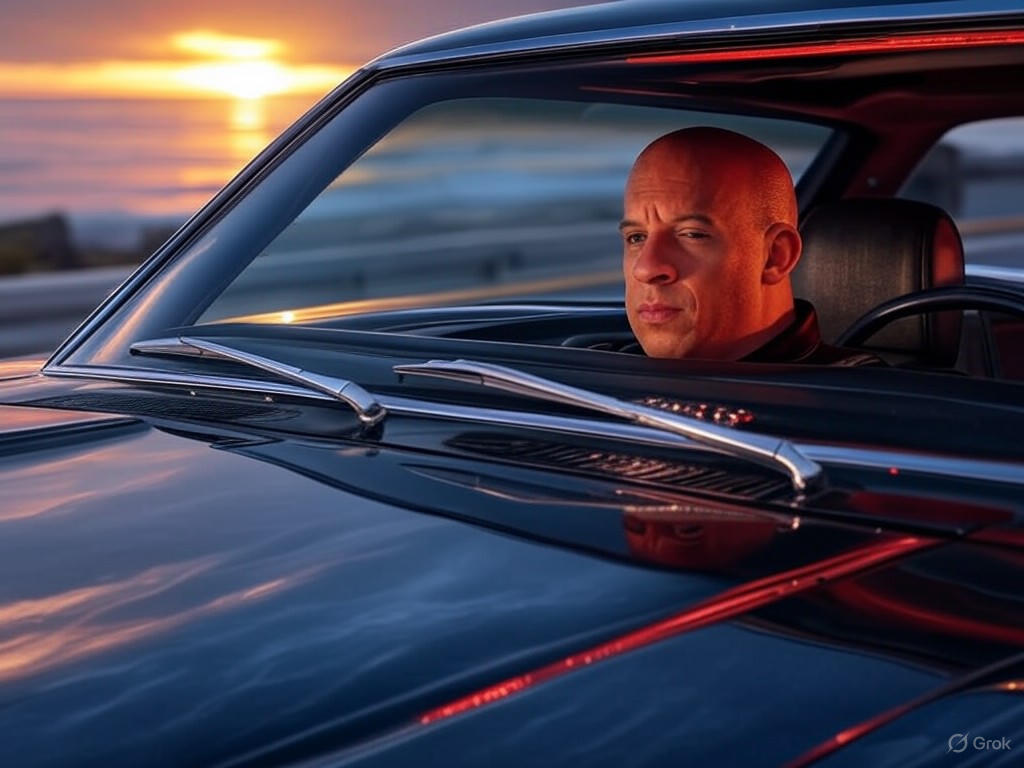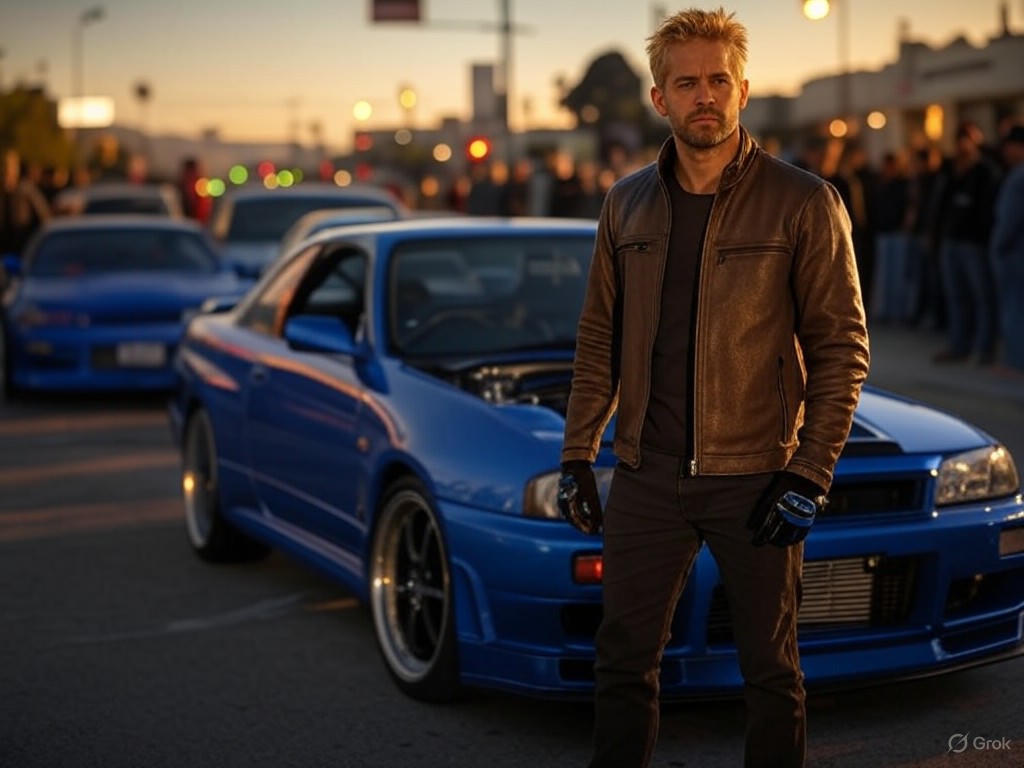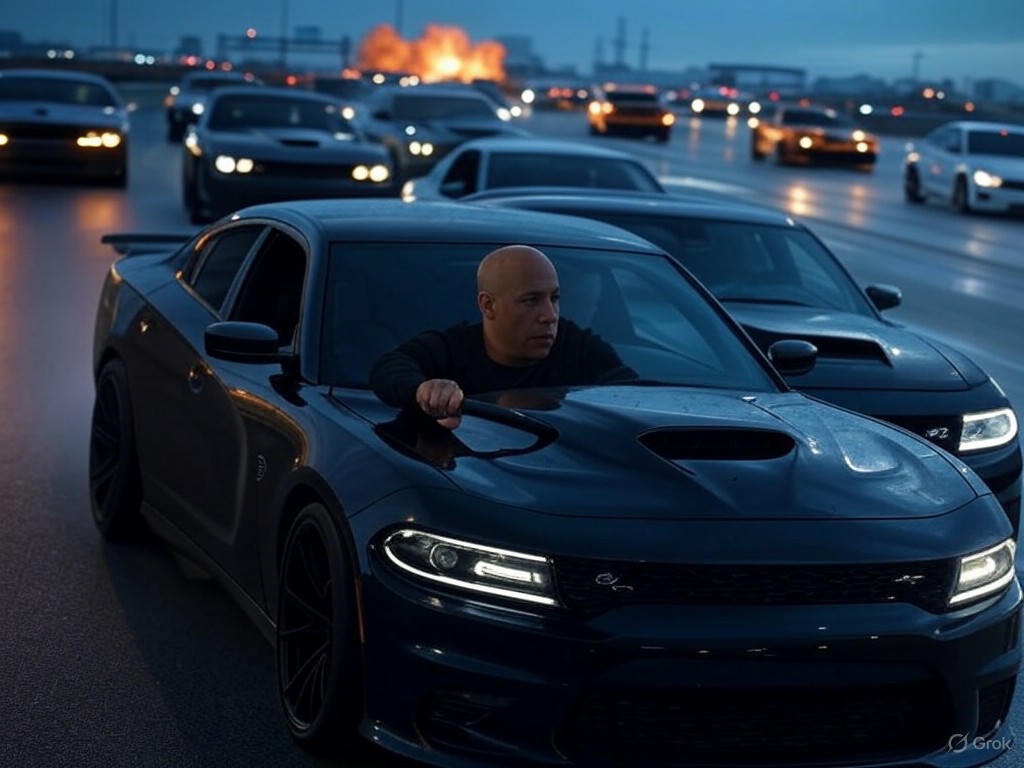Fast and Furious 11: A Franchise Finale to Watch
Why, folks, if there's one thing that gets my old heart racing faster than a riverboat down the Mississippi, it's a good story with a satisfying end. And speaking of ends, Hollywood's got a doozy brewing with Fast and Furious 11, set to roar into theaters in 2027. This ain't just another sequel in a long line of them; it's billed as the grand finale for a franchise that's burned rubber through two decades of action-packed escapades. Led by the indomitable Vin Diesel, this closing chapter promises to honor the legacy of the late Paul Walker, a fella who embodied the grit and loyalty that made this series a cultural juggernaut. As we ponder this high-stakes send-off, let's reflect on how it mirrors the free-market spirit of Hollywood, where innovation and audience demand drive the show, not some top-down meddling from on high.
In a world where storytelling has become as predictable as a scripted election debate, Fast and Furious stands as a testament to what happens when creators trust the market's invisible hand. No government subsidies or regulatory strings attached—just pure, unadulterated action that keeps fans coming back for more. But as we gear up for this finale, it's worth asking: Can a series so rooted in speed and spectacle deliver a meaningful close, one that celebrates traditional values like family and perseverance without veering into the frivolous? Let's hit the gas and find out.
The Thrill of the Chase: A Franchise Built on Free-Market Fundamentals
Picture this: It's 2001, and a little movie called The Fast and the Furious hits the screens, introducing us to street racers who live life in the fast lane. Who'd have thought it'd spawn not just sequels, but a full-blown empire? Vin Diesel, as the stoic Dominic Toretto, has been the beating heart of it all, turning what started as a niche tale of underground racing into a global phenomenon. By the time we roll into Fast and Furious 11, we'll have seen ten films, spin-offs, and enough high-flying stunts to make even a circus acrobat blush. Diesel himself has hinted at this being the end, calling it a "love letter to the fans" in recent interviews (Variety).
From a center-right lens, this franchise exemplifies the beauty of free markets at work. Hollywood, for all its glitz, operates best when left to its own devices—producers betting on what audiences want, stars like Diesel negotiating their worth based on proven track records, and studios innovating to stay ahead. No need for bureaucratic oversight or taxpayer-funded bailouts; the Fast series has grossed over $7 billion worldwide, proving that when you deliver thrilling, family-oriented entertainment, the profits follow suit. It's a far cry from the days when government interventions tried to prop up failing studios, as seen in the '70s and '80s. Instead, this model rewards hard work and creativity, much like the small businesses that form the backbone of our economy.
Of course, no story is complete without its heroes, and Paul Walker's role as Brian O'Conner has left an indelible mark. Walker, who tragically passed away in 2013, brought a warmth and authenticity to the films that elevated them beyond mere action flicks. Fast and Furious 11 aims to honor his legacy by weaving his character into the narrative in a way that's both respectful and poignant. Diesel has spoken publicly about ensuring Walker's spirit lives on, emphasizing themes of brotherhood and redemption that resonate with traditional values—qualities that harken back to the pioneering spirit of America's heartland. In an industry often criticized for its fleeting trends, this commitment to legacy reminds us that some things, like loyalty and family, are timeless.

Vin Diesel tests a custom muscle car on set, capturing the raw energy and free-spirited essence that has defined the Fast and Furious franchise for over two decades.
Analyzing the Road Ahead: Hollywood's Finale in a Changing Landscape
As we analyze Fast and Furious 11's role as a finale, it's clear this isn't just about wrapping up plotlines; it's about Hollywood's broader evolution. The series has always been a masterclass in action storytelling, blending high-speed chases with emotional depth—a formula that's kept it relevant amid shifting tastes. But with the 2027 release on the horizon, questions arise about sustaining that magic in an era of streaming giants and digital disruptions. Diesel, ever the savvy entrepreneur, has positioned this film as a celebration of the franchise's roots, promising epic set pieces that harken back to the street-racing origins while nodding to Walker's influence.
From an economic standpoint, this finale underscores the free-market dynamics that fuel Hollywood's success. Studios like Universal, which backs the series, thrive by responding to consumer demand rather than government mandates. According to a recent analysis, blockbuster franchises like Fast and Furious generate billions in revenue through global box office and merchandise, all without relying on public funds (The Hollywood Reporter). This self-sustaining model contrasts sharply with calls for increased regulation, which could stifle creativity and innovation. Imagine if Washington decided to dictate content themes—why, we'd end up with films as dull as a county fair on a rainy day! Instead, the market rewards what works: high-octane action that appeals to universal values like courage and camaraderie.
Yet, balance demands we acknowledge the challenges. Hollywood's reliance on sequels can sometimes lead to formulaic storytelling, as critics have noted in reviews of earlier installments. For instance, the series has evolved from gritty street races to globe-trotting spectacles, raising questions about authenticity (Wall Street Journal). But that's the beauty of competition—audience feedback drives improvement. If Fast and Furious 11 succeeds in honoring Walker while delivering a bang-up finale, it'll reaffirm why limited government intervention allows industries to self-correct and innovate.
Evidence on the Asphalt: Box Office Might and Cultural Impact
Let's not mince words; the evidence for Fast and Furious' enduring appeal is as clear as a sunny day on the open road. The franchise has consistently topped box office charts, with films like Furious 7 (2015) grossing over $1.5 billion worldwide, partly due to heartfelt tributes to Walker (Box Office Mojo, via IMDb). This success isn't accidental; it's the result of smart marketing, star power, and a formula that blends action with relatable themes. Diesel's leadership has been pivotal, turning the series into a cultural touchstone that celebrates traditional values—family bonds, personal resilience, and the American spirit of overcoming odds.
Data from industry analysts shows that franchises like this one contribute significantly to economic growth, creating jobs in film production and tourism without taxpayer dollars (Deadline Hollywood). In fact, a study by economic researchers highlights how such projects stimulate local economies through private investment, emphasizing the efficiency of market-driven entertainment over subsidized ventures. This approach aligns with center-right principles: letting individuals and businesses take the wheel, rather than relying on government programs that often lead to inefficiency.

A conceptual tribute to Paul Walker, depicting his character in a high-speed racing scene that symbolizes the franchise's enduring legacy of friendship and adventure.
Crossing the Finish Line: A Legacy Worth Celebrating
As we approach the checkered flag with Fast and Furious 11, it's fitting to reflect on what this finale means for Hollywood and beyond. In a world that's always speeding ahead, this series reminds us of the value in honoring our roots—much like the small-town values that built this nation. Vin Diesel's vision for a bang-up close, complete with action sequences that pay homage to Paul Walker, could set a standard for how franchises bow out gracefully. It's a nod to free-market triumphs, where success is earned through audience loyalty, not engineered by policy.
Ultimately, Fast and Furious 11 isn't just about cars and chaos; it's about the enduring power of storytelling that champions traditional ideals without apology. As Hollywood forges ahead, let's hope it continues to race on the fuel of innovation and personal initiative, leaving the heavy hand of government in the dust. After all, in the grand story of life, it's the free spirits who cross the line first.

